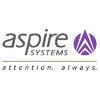Software Analyst
100+ Software Analyst Interview Questions and Answers

Asked in Goldman Sachs

Q. Arithmetic Progression Queries Problem Statement
Given an integer array ARR of size N, perform the following operations:
- update(l, r, val): Add (val + i) to arr[l + i] for all 0 ≤ i ≤ r - l.
- rangeSum(l, r):...read more
The problem involves updating and calculating the sum of elements in an array based on given operations.
Implement update(l, r, val) to add (val + i) to arr[l + i] for all i in range [0, r - l].
Implement rangeSum(l, r) to return the sum of elements in the array from index l to r.
Handle queries using 1-based indexing and output the sum of arr[l..r] for each rangeSum operation.

Asked in UnitedHealth

Q. Maximize Stock Trading Profit
You are given an array prices, representing stock prices over N consecutive days. Your goal is to compute the maximum profit achievable by performing multiple transactions (i.e., b...read more
To maximize stock trading profit, find maximum profit achievable by buying and selling shares multiple times.
Iterate through the array of stock prices and find all increasing sequences of prices.
Calculate profit by buying at the start of each increasing sequence and selling at the end.
Sum up all profits to get the maximum profit achievable.

Asked in Goldman Sachs

Q. Minimum Depth of a Binary Tree Problem Statement
Given a Binary Tree of integers, determine the minimum depth of the Binary Tree. The minimum depth is defined as the number of nodes present along the shortest p...read more
The minimum depth of a Binary Tree is the number of nodes along the shortest path from the root node to the nearest leaf node.
Traverse the Binary Tree using BFS (Breadth First Search) to find the minimum depth
Keep track of the level of each node while traversing
Stop the traversal as soon as a leaf node is encountered and return the level as the minimum depth

Asked in LTIMindtree

Q. Prime Numbers Identification
Given a positive integer N, your task is to identify all prime numbers less than or equal to N.
Explanation:
A prime number is a natural number greater than 1 that has no positive d...read more
Identify all prime numbers less than or equal to a given positive integer N.
Iterate from 2 to N and check if each number is prime
Use the Sieve of Eratosthenes algorithm for efficient prime number identification
Optimize by only checking up to the square root of N for divisors

Asked in Flipkart

Q. Find K-th Smallest Element in BST
Given a binary search tree (BST) and an integer K, the task is to find the K-th smallest element in the BST.
Example:
Input:
BST: Order of elements in increasing order is { 2, ...read moreTo find the K-th smallest element in a BST, perform an in-order traversal and return the K-th element encountered.
Perform in-order traversal of the BST to get elements in increasing order
Keep track of the count of elements visited and return the K-th element
Time complexity can be optimized by maintaining a count of nodes in each subtree

Asked in Amazon

Q. String Palindrome Verification
Given a string, your task is to determine if it is a palindrome considering only alphanumeric characters.
Input:
The input is a single string without any leading or trailing space...read moreA program to check if a given string is a palindrome, considering only alphanumeric characters.
Remove non-alphanumeric characters from the input string.
Compare the string with its reverse to check for palindrome.
Return true if the string is a palindrome, false otherwise.
Software Analyst Jobs




Asked in PTC

Q. There are three wires of the same length. The first is crafted into a circle, the second into an equilateral triangle, and the third into a square. Which one will have the minimum area?
The wire crafted into a circle will have the minimum area.
The circle has the smallest perimeter to area ratio compared to the equilateral triangle and square.
The formula for the area of a circle is A = πr^2, where r is the radius.
For the equilateral triangle, the formula is A = (√3/4) * s^2, where s is the side length.
For the square, the formula is A = s^2, where s is the side length.

Asked in Goldman Sachs

A website similar to Instagram for travelers, allowing users to share photos and stories from their trips.
Include features like geotagging to show where photos were taken
Allow users to create travel itineraries and share tips with others
Implement a rating system for destinations and accommodations
Enable users to connect with fellow travelers and plan trips together
Share interview questions and help millions of jobseekers 🌟


Asked in Accenture

Q. When and how do we configure database connections in JDeveloper, and what are the differences between WSDLs?
Database connections in JDeveloper are configured in the application's deployment descriptor file. WSDLs are XML-based descriptions of web services.
Database connections in JDeveloper are configured in the application's deployment descriptor file, typically web.xml or persistence.xml.
The configuration includes details such as database URL, username, password, and driver class.
WSDLs (Web Services Description Language) are XML-based descriptions of web services, defining the ope...read more

Asked in Accenture

Q. 1.What is different types of testing? 2.what is oops? 3.what is abstraction?
Different types of testing include unit testing, integration testing, system testing, and acceptance testing.
Unit testing focuses on testing individual components or units of code.
Integration testing verifies the interaction between different components.
System testing ensures the entire system works as expected.
Acceptance testing validates if the system meets the user's requirements.
OOPs stands for Object-Oriented Programming.
Abstraction is a concept in OOP that focuses on hi...read more

Asked in PTC

Q. Describe different techniques for swapping two numbers, including possible test cases and potential pitfalls.
Swapping two numbers using different techniques and discussing possible test cases and errors.
Using a temporary variable to swap the numbers
Using arithmetic operations to swap the numbers
Using bitwise XOR operation to swap the numbers
Test cases: positive numbers, negative numbers, zero, large numbers, floating point numbers
Possible errors: not using a temporary variable correctly, overflow/underflow with arithmetic operations, not handling edge cases

Asked in Accenture

Q. How do we handle faults and errors in our API development process and also how do we configure fault policies and secure the APIs
Handling faults and errors in API development process and configuring fault policies for securing APIs
Implement proper error handling mechanisms in the API code to catch and handle faults and errors
Use logging and monitoring tools to track errors and faults in real-time
Configure fault policies such as retry mechanisms, circuit breakers, and fallback options to handle errors gracefully
Secure APIs by implementing authentication and authorization mechanisms, such as API keys, OA...read more

Asked in Intergraph

Q. Write code to delete a node from a doubly linked list.
Code to delete a node from double linked list
Identify the node to be deleted
Update the previous node's next pointer to point to the next node
Update the next node's previous pointer to point to the previous node
Free the memory occupied by the node

Asked in PTC

Q. How much was my understanding about PTC core values.
I have a strong understanding of PTC core values.
PTC core values include customer success, innovation, integrity, and teamwork.
I have demonstrated my understanding of these values through my work on projects that prioritize customer satisfaction and collaboration.
I have also shown my commitment to integrity by always following ethical guidelines in my work.
I stay updated on industry trends and technologies to contribute to innovation within the company.

Asked in Accenture

Q. How can you assess a candidate's ability to address HR challenges in the workplace?
Assess candidate's ability to address HR challenges by evaluating their communication skills, problem-solving abilities, conflict resolution techniques, and knowledge of HR policies.
Evaluate their communication skills through role-playing scenarios or case studies involving HR issues.
Assess their problem-solving abilities by presenting them with hypothetical HR challenges and asking how they would approach them.
Observe their conflict resolution techniques by discussing past e...read more

Asked in Intergraph

Q. What is fourier transform? Where do we use it?
Fourier transform is a mathematical technique that transforms a signal from time domain to frequency domain.
It is used in signal processing to analyze and filter signals
It is used in image processing to extract features and compress images
It is used in audio processing to remove noise and enhance sound quality
It is used in cryptography to encrypt and decrypt data
It is used in quantum mechanics to describe the behavior of particles
It is used in many other fields such as financ...read more

Asked in Aspire Systems

Q. 3.Explain project 4.Oops concepts in java,local variable & global variables. 5.programs prime, Fibonacci 6.Delete command 7.Access modifiers in java.
Questions related to software analysis and Java programming concepts.
Project refers to a temporary endeavor to create a unique product or service.
Local variables are declared within a method and have limited scope.
Global variables are declared outside a method and can be accessed throughout the class.
Prime program checks if a number is prime or not.
Fibonacci program generates the Fibonacci series.
Delete command is used to remove files or directories in a file system.
Access mo...read more

Asked in Capgemini

Q. What are the differences between ORDER BY and GROUP BY?
ORDERBY is used to sort the result set based on specified columns, while GROUPBY is used to group the result set based on specified columns.
ORDERBY sorts the result set based on specified columns
GROUPBY groups the result set based on specified columns
ORDERBY can be used with aggregate functions like SUM, COUNT, etc.
GROUPBY is used with aggregate functions to perform operations on each group

Asked in Intergraph

Q. What are filters and why do we use them?
Filters are used to sort, group, or limit data based on specific criteria.
Filters are used to refine data by selecting specific criteria.
They can be used to sort data in ascending or descending order.
Filters can also be used to group data based on specific attributes.
They can be used to limit the amount of data displayed.
Examples of filters include date range filters, category filters, and search filters.

Asked in Agilysys Technologies India

Q. Write a program based on the following use cases.
Creating simple programs based on use cases helps in understanding requirements and functionality.
Identify the use case: e.g., User login system.
Define the actors: e.g., User, System.
Outline the main flow: e.g., User enters credentials, system validates.
Consider alternative flows: e.g., Incorrect password handling.
Implement the program: e.g., Use a programming language like Python.

Asked in TIAA Global Business Services

Q. What is BST Tree. Write function for insertion of BST tree.
BST Tree is a binary tree data structure where each node has at most two children, with left child nodes being less than the parent node and right child nodes being greater.
BST Tree stands for Binary Search Tree.
In a BST Tree, the left subtree of a node contains only nodes with keys less than the node's key, and the right subtree contains only nodes with keys greater than the node's key.
Example: Inserting values 5, 3, 7, 1, 4 into a BST Tree would result in a tree with root n...read more

Asked in Accenture

Q. 1.What is algorithm? 2what is header files in c?
Algorithm is a set of instructions to solve a problem or perform a task.
It is a step-by-step procedure to solve a problem.
It can be represented using flowcharts or pseudocode.
Examples include sorting algorithms like bubble sort and quicksort.
Efficiency of an algorithm is measured using time and space complexity.

Asked in Goldman Sachs

Q. Describe an SQL query you wrote that involved GROUP BY and JOIN clauses.
An SQL query using GROUP BY and JOINs aggregates data from multiple tables based on specified conditions.
GROUP BY is used to arrange identical data into groups.
JOINs combine rows from two or more tables based on a related column.
Example: SELECT department, COUNT(*) FROM employees GROUP BY department;
Example with JOIN: SELECT d.name, COUNT(e.id) FROM departments d JOIN employees e ON d.id = e.department_id GROUP BY d.name;

Asked in Infosys

Q. What are joins and what are the different types of joins?
Joins are used to combine rows from two or more tables based on a related column between them.
Types of joins include INNER JOIN, LEFT JOIN, RIGHT JOIN, and FULL JOIN.
INNER JOIN returns rows when there is at least one match in both tables.
LEFT JOIN returns all rows from the left table and the matched rows from the right table.
RIGHT JOIN returns all rows from the right table and the matched rows from the left table.
FULL JOIN returns rows when there is a match in one of the tabl...read more

Asked in One Network Enterprises

Q. What is the difference between PUT and POST methods?
PUT is used to update an existing resource, while POST is used to create a new resource.
PUT replaces the entire resource with the new data, while POST only adds a new sub-resource or modifies an existing one.
PUT is idempotent, meaning multiple identical requests will have the same effect as a single request, while POST is not.
PUT requires the client to send the entire updated resource, while POST only requires the relevant data to create or modify the sub-resource.
Examples: P...read more

Asked in Intergraph

Q. Write code to print a linked list in reverse order.
Code to print linked list reversely
Traverse the linked list and push each node into a stack
Pop each node from the stack and print its value

Asked in Accenture

Q. what are all annotation in springboot? why string immutable? questions on try catch exception and collection
Annotations in Spring Boot, immutability of strings, try-catch exceptions, and collections
Annotations in Spring Boot: @RestController, @RequestMapping, @Autowired, @Component, etc.
String immutability: Strings are immutable to ensure data integrity and security
Try-catch exceptions: Used to handle and manage exceptions in code execution
Collections: Data structures like List, Set, Map, etc. to store and manipulate groups of objects

Asked in SSPL

Q. How do you remove duplicate values from an ArrayList?
Remove duplicate values from ArrayList
Create a HashSet from the ArrayList to remove duplicates
Convert the HashSet back to ArrayList
Use Collections.sort() to sort the ArrayList if needed

Asked in TCS

Q. What is a microprocessor?
A microprocessor is a small electronic chip that serves as the central processing unit (CPU) of a computer.
It is responsible for executing instructions and performing calculations in a computer.
It is made up of millions of transistors that work together to process data.
Examples include Intel's Pentium and AMD's Ryzen processors.
It is the brain of a computer and determines its processing power.
It is found in a variety of devices, including smartphones, tablets, and cars.

Asked in Capgemini

Q. What does CRUD operation stand for?
CRUD stands for Create, Read, Update, and Delete. It is a set of basic operations used in database management.
Create - Inserting new data into the database
Read - Retrieving data from the database
Update - Modifying existing data in the database
Delete - Removing data from the database
CRUD operations are commonly used in web applications and APIs
Interview Questions of Similar Designations
Interview Experiences of Popular Companies





Top Interview Questions for Software Analyst Related Skills



Reviews
Interviews
Salaries
Users

















